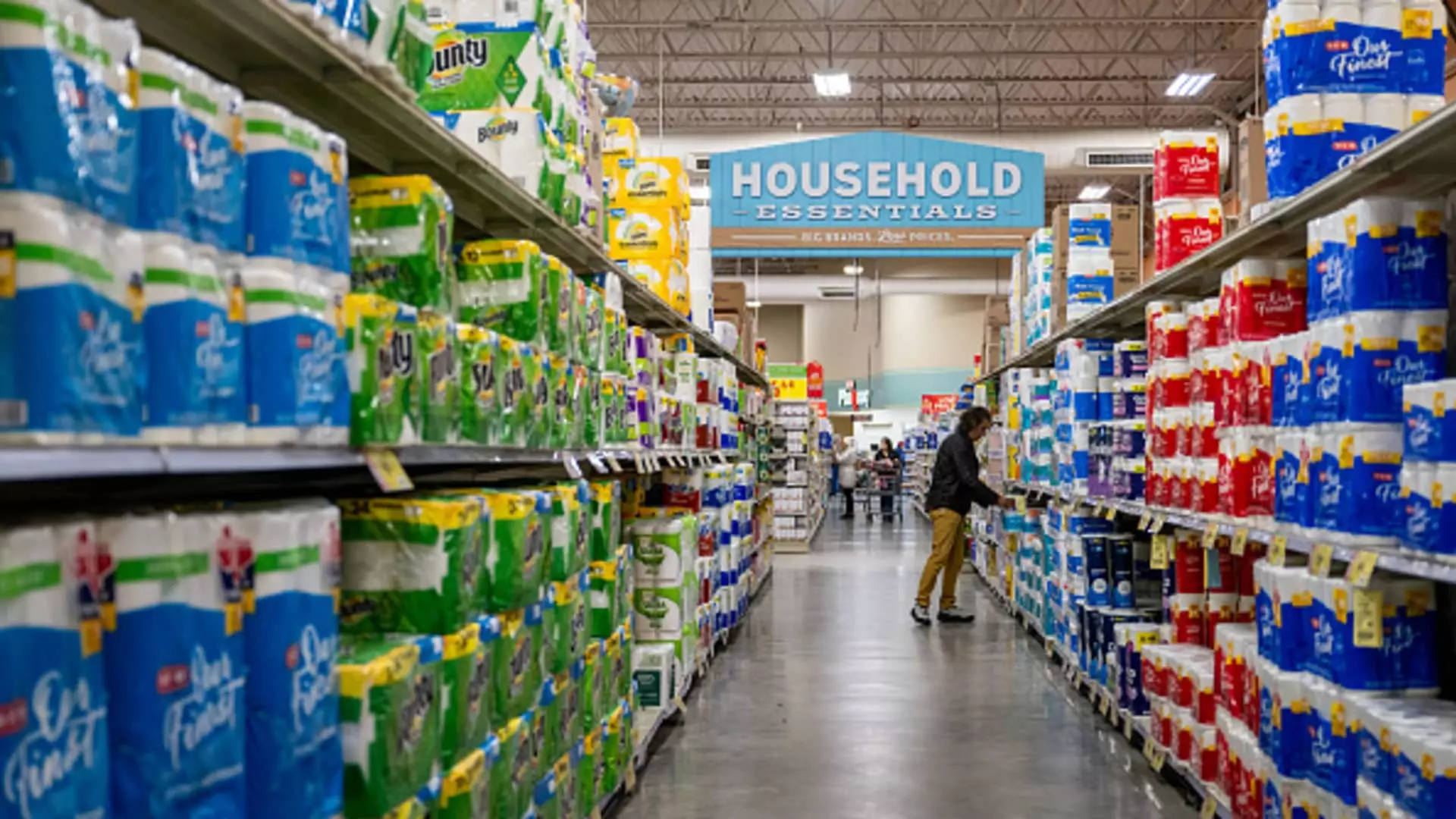In the ever-shifting landscape of American trade policy, a new wave of tariffs introduced by the Trump administration is set to push the prices of essential consumer goods into dizzying heights. Items as basic as coffee, bananas, and toilet paper are now on a collision course with rising costs due to import tariffs that will affect over 180 countries. The idealistic notion of bringing jobs back to the United States is commendable, yet the execution reveals a startling disconnect between political aspirations and the tangible realities faced by everyday consumers. This is not just an economic maneuver; it’s a serious gamble that threatens to impact the average family’s grocery bill in profound ways.
The Reality of Domestic Limitations
The gut-wrenching irony in the administration’s strategy lies in its flawed assumption that all ingredients and materials can be sourced domestically. According to the Consumer Brands Association (CBA), this approach illuminates a critical oversight: many staples of the American diet simply cannot be produced here. The agricultural limitations imposed by geography and climate mean that significant imports are unavoidable. For instance, the United States relies heavily on tropical fruits—such as bananas and vanilla—that thrive in specific environments, entirely absent from U.S. soil.
To push through these tariffs without acknowledging this reality is reckless. Commerce Secretary Howard Lutnick’s dismissal of requests for product-specific exemptions for vital imports is particularly troubling. It establishes a worrisome precedent that overlooks the intricate web that connects global markets, which is essential for the smooth functioning of our consumer economy.
Impending Burden on Consumers
The CBA has already warned that American families can expect to see price hikes in various daily necessities. The cost of familiar items like coffee could escalate, leading to a jarring adjustment for those looking to enjoy their morning brews. Coffee, cocoa, and spices are prime examples of imports that face an uphill battle under this tariff regime, leaving consumers to potentially pay the price for a political agenda. As we bear witness to these rising prices, it’s clear that the repercussions will extend far beyond a mere increase in grocery bills.
Household staples, too, are not immune. Products like toilet paper, diapers, and various personal care items could see dramatic increases in cost as manufacturers scramble to offset surging expenses caused by tariffs on raw materials such as wood pulp and bamboo fibers. When these fundamental items become pricier, the impact reverberates throughout households, affecting family budgets and creating unnecessary financial strain.
The Illusion of Economic Growth
An intriguing paradox arises when one examines how stock markets reacted to the tariff announcement. While broader markets plunged, stocks within the consumer staples sector—often viewed as a safe haven—generally rose. Major players like Procter & Gamble and Coca-Cola experienced upticks in their share prices, suggesting that investors are more focused on stability rather than ethical implications. This presents a curious contradiction: while Wall Street may thrive in the chaos, Main Street is left looking at ever-dwindling purchasing power.
Yet, one cannot help but marvel at the irony in these numbers. As executives from prominent companies tout plans for targeted price adjustments and cost-saving measures, it’s the working-class citizen—often already stretched thin—who will continue to bear the brunt of this trade endeavor. The demand for accountability and transparency within our consumer economy becomes more urgent as these price pressures mount.
The Echo of American Values
At its core, this trade policy raises deep questions about American values. Are we truly putting our citizens first if their access to affordable basic needs is compromised by political agendas? It’s vital that we forge a path forward that recognizes the reality of our interconnected world, one that upholds not only economic ambitions but also the dignity and well-being of everyday people. A balanced approach should prioritize both domestic industries and the ethical treatment of consumers, reflecting a progressive American spirit that values equity above all.
It is essential for future policymakers to consider not just the lofty aims of bringing jobs back home but also the immediate implications of their decisions. Let’s transition from a reactive stance to proactive solutions, lest we burden generations to come with the folly of short-sighted policies. In a complex world, it is imperative that we learn to navigate the intricacies of trade with understanding and care, rather than blind allegiance to a singular narrative that ultimately harms the very citizens it purports to protect.

